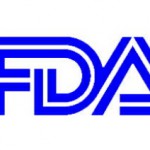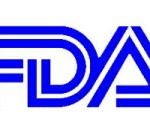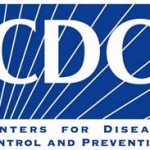The Government Accountability Office (GAO) released their 2013 report on high risk areas of oversight. Food safety was one of those areas. We reported on this over the weekend, along with Congresswoman Rosa DeLauro's response to the government. But the document itself is worth examining more closely. The GAO states that federal oversight of food safety is fragmented and inconsistent. Indeed, the FDA, USDA, FSIS, USDA's Agricultural Marketing Service, and USDA's Animal and Plant Health Inspection Service all play a part in overseeing the egg production system, for example. There was a recall of more than 500 million eggs in 2010 that highlighted this problem. They also state that there are three trends that create food safety challenges: a substantial portion of our food supply is … [Read more...]
FDA Extends Comment Period on Overdue FSMA Rules
The FDA announced on Friday that they are delaying the close of the comment period on two food safety rules that are part of the Food Safety Modernization Act. Those rules are already more than a year overdue. The two rules are "Current Good Manufacturing Practice and Hazard Analysis and Risk-Based Preventive Controls for Human Food" and "Standards for the Growing, Harvesting, Packing, and Holding of Produce for Human Consumption." Both rules were published for comment on January 16, 2013. Comments were supposed to close on February 15, 2013, but requests by the United Fresh Produce Association and others asked the government to extend the comment period. The press release stated, "FDA is taking the action of extending the deadline for the comment period in response to requests for that … [Read more...]
FSMA Releases Rule to Let Authorities Detain Adulterated Food
The Food and Drug Administration (FDA) released one of the rules under the Food Safety Modernization Act (FSMA) yesterday, giving public health officials the authority to detain contaminated and adulterated food. Before this rule, government officials could only hold a food when it had "credible evidence" that it presented a health risk to humans or animals. The FDA can now detain food if it believes the product is "adulterated or misbranded." The rule "Criteria Used to Order Administrative Detention of Food for Human or Animal Consumption" was adopted without change. Some comments were posted on the interim rule suggested changes, but they were dismissed. In a press release, officials said, "before the passage of FSMA, FDA was able to detain a food product only when it had credible … [Read more...]
Tennessee A Food Safety Center Of Excellence Site
Tennessee will be the site for one of five national Integrated Food Safety Centers of Excellence. The creation of these, which will identify best practices in foodborne disease surveillance and serve as public health resources, was mandated by tthe Food Safety Modernization Act. The other sites are Minnesota, Oregon, Colorado and Florida. Funded by a $200,000 grant from the Centers for Disease Control and Prevention (CDC), the center will be a collaborative enterprise of the Tennessee Department of Health and the University of Tennessee. It will be be located on UT’s Knoxville campus. “Surveillance and investigation of outbreaks of foodborne illness, along with our more than 70,000 annual inspections of food service facilities and extensive laboratory work, are vital areas in which … [Read more...]
Fact Sheet on FSMA Rule for Preventive Controls
The FDA has released a fact sheet on the Food Safety Modernization Act (FSMA) proposed rule for preventive controls for human food. The public can now comment on this rule. The rule would apply fo domestic and foreign firms that "manufacture, process, pack, or hold human food." Under the new rule, these firms must have written plans that identify hazards that could affect the food or product, specify the steps that will be put in place to prevent or minimize those hazards, identify monitoring procedures and record monitoring results, and specify what actions will be taken to correct problems that arise. The first compliance date is one year after the final rule is published in the Federal REgister. Small business have two years to comply, while very small businesses have three … [Read more...]
New Produce Safety Rule: Sprouts Pose “A Unique Risk”
The newly proposed produce safety rule of the Food Safety Modernization Act (FSMA) has a section devoted to sprouts because they “present a unique risk.” That’s because the ideal conditions for growing sprouts are also ideal for growing pathogens, as we have seen many times in recent years. Since 1996, there have been 30 “sproutbreaks” where sprouts contaminated with Salmonella, Listeria monocytogenes, E. coli, and other pathogens have caused outbreaks of illness. In 2012, sprouts were recalled for potential contamination at least seven times and caused one of the largest multi-state foodborne illness outbreaks of the year. The 11-state outbreak which sickened 29 people was linked to sprouts served at a fast food sandwich chain. Also in 2012, Kroger, one of the nation’s largest … [Read more...]
NRDC Makes To Do List For The FDA
Slowly rolling out proposed rules mandated by the Food Safety Modernization Act (FSMA) is one thing, but if the US Food and Drug Administration (FDA) really wants to show consumers that it’s serious about protecting public health, it has more work to do So says the National Resources Defense Council (NRDC), anyway. To show Americans that it has our backs, the agency needs to tackle three major threats to public health, Peter Lehner, the NRDC’s executive director, says in a recent blog post. They are: ending the use of antibiotics in livestock, banning Triclosan and protecting consumers from the use of BPA and other chemical contaminants of food. “Back in 1977, the FDA concluded that feeding antibiotics to farm animals was a threat to human health, and yet it did next to nothing to … [Read more...]
OMB, FDA Finally Release Two Food Safety Modernization Act Rules
The Office of Management and Budget (OMB) has finally released two proposed food safety rules that are part of the Food Safety Modernization Act. Four crucial rules have been held back for more than a year after they were to be implemented. The Food Safety Moderization Act (FSMA) was signed into law almost two years ago. The first rule is Controls for Human Food. The new rule requires that most human food facilities have a written plan that evaluates hazards that are likely to occur in that food, specifies the steps that will be used to minimize or prevent those hazards, and specify how the controls will be monitored. In addition, the facility will be required to maintain routine records of the monitoring, and specify the actions that will be taken when problems arise. Planning and … [Read more...]
Food Safety Modernization Act Progress Report
The Food and Drug Administration has released its October to December 2012 progress report on implementation of the Food Safety Modernization Act (FSMA). It details the actions taken by the government that are required by the Act, or empowered by the Act. In October, the FDA released updated Guidance for Industry on the use of food product categories in facility registrations. It also announced updated food facility registration system for biennial registration renewal. Technical assistance of offered online and through the help desk. In November, Ddeputy Commissioner for Foods and Veterinary Medicine Michael R. Taylor spoke at the China International Food Safety and Quality Conference and Expo in Shanghai, China. He cited the work accomplished under FSMA. And the FDA suspended the … [Read more...]
Deadline Approaches For Food Safety Law’s Food Facility Registration
The Food Safety Modernization Act (FSMA) of 2011 requires all companies that make, process, package or store food for human or animal consumption to register with the US Food and Drug Administration (FDA) by January 31, 2013, or face penalty. After the January 2013 registration, companies will be required to re-register every two years. The FDA has published a guidance to clear up confusion about who is required to register and who is not. For example, dietary supplements, truck-mounted operations, and makers of rawhide chew treats for dogs are all required to register. Restaurants and retail operations are not. Farms are generally exempt, but there are some exceptions depending on where and how much packaging is done. Food facilities were required to register with the FDA since the … [Read more...]









